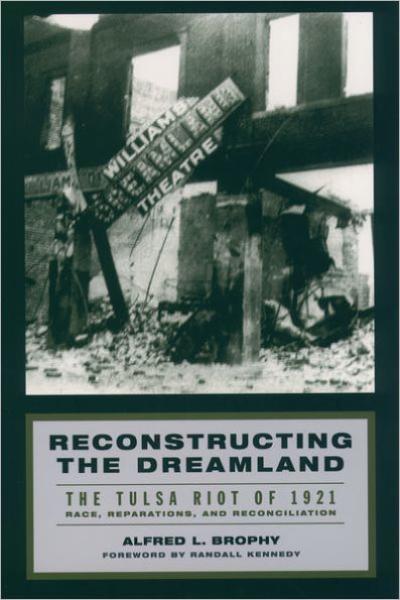Description
Brophy draws on his own extensive research into contemporary accounts and court documents to chronicle this devastating riot, showing how and why the rule of law quickly eroded. Brophy shines his lights on mob violence and racism run amok, both on the night of the riot and the following morning. Equally important, he shows how the city government and police not only permitted looting, shootings, and the burning of Greenwood, but actively participated in it by deputizing white citizens haphazardly, giving out guns and badges, or sending men to arm themselves. Likewise, the National Guard acted unconstitutionally, arresting every black resident they found, leaving property vulnerable to the white mob.
Brophy's stark narrative concludes with a discussion of reparations for victims of the riot through lawsuits and legislative action. That case has implications for other reparations movements, including reparations for slavery.
Recovers a largely forgotten history of black activism in one of the grimmest periods of race relations.... Linking history with advocacy, Brophy also offers a reasoned defense of reparations for the riot's victims.--Washington Post Book World
Meticulously researched...., A good job of showing how the true history of the riot was whitewashed, and how difficult it has been for white Tulsa--and white America for that matter--to acknowledge its racist past.--San Diego Union Tribune
Brophy's history of reparations is fascinating.--St. Louis Post Dispatch
Recovers a largely forgotten history of black activism in one of the grimmest periods of race relations, emphasizing the black militancy of the World War I era and how assertive black demands for racial equality threatened white Tulsans. Linking history with advocacy, Brophy also offers a reasoned defense of reparations for the riot's victims.--Washington Post Book World
At once meticulously factual and riveting, Alfred Brophy's moving account of a 1921 race riot that destroyed an economically self-reliant, vibrant African-American community clarifies why political action and enforcement of legal and human rights are indispensable perquisites for black economic opportunity and material progress. Brophy also clarifies why Americans need to find the courage to acknowledge injustices of the recent past and contrive amends to help heal still-unresolved consequences scarring both victims and perpetrators.--Jane Jacobs
Timely, well documented and powerfully written...vividly illustrates a chapter of America's sordid racist past by focusing on the Tulsa Race Riots of 1921. If we are to transcend the barriers to racial progress, we all must read Brophy's compelling work and use it as a seminal case in our path to avoid conflicts at all costs.... Brophy's book is the best-written account of the Tulsa riots, and captures the people of Tulsa's resolve to never allow a similar travesty to occur again. Every person interested in racial justice should have this book at his or her disposal.--Charles J. Ogletree, Jr., Jesse Climenko Professor of Law, Harvard Law School
Product Details
- Oxford University Press, Brand
- Apr 10, 2003 Pub Date:
- 0195161033 ISBN-10:
- 9780195161038 ISBN-13:
- 208 Pages
- 9.38 in * 6.08 in * 0.57 in Dimensions:
- 1 lb Weight:




